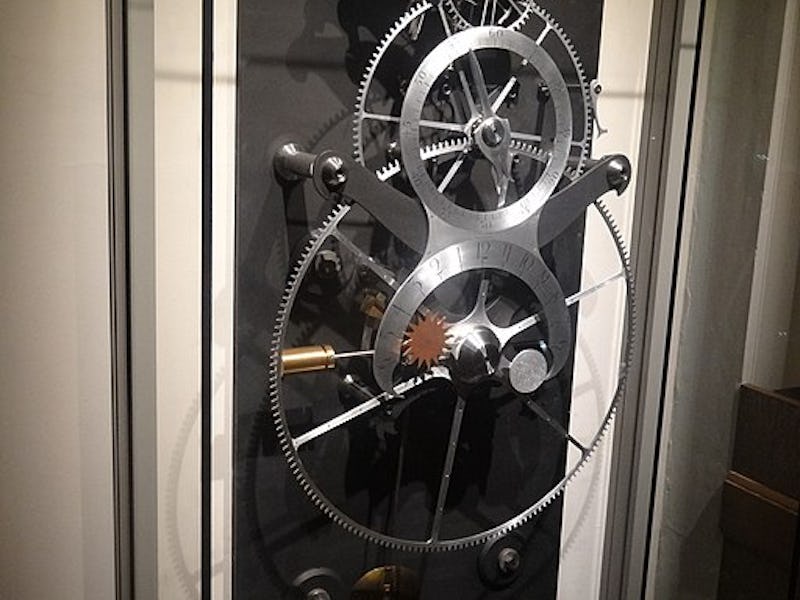John Harrison Holds a Guinness World Record Award for This "Absurd" Invention
No one believed him for 200 years.

Google Doodle celebrated the 325th birthday of John Harrison on Tuesday, the famed clockmaker known for his efforts in calculating longitude. But his lesser-known and most ridiculed invention — one that almost ruined his career — now holds a Guinness World Record as his real masterpiece.
The British carpenter and clockmaker became famous for inventing marine chronometers that could calculate longitude, revolutionizing maritime travel in the 18th century. But his subsequent idea, a theory that he could develop a pendulum timepiece accurate to within a second over a 100-day period, didn’t receive the same praise.
Reviews of his work were mocked across the country. The London Review of English and Foreign Literature described it as “one of the most unaccountable productions we have ever met with.” His concept was derided as “an incoherence and absurdity that was little short of the symptoms of insanity.” The theory was never tested with a model and his research was discarded after his death.
Clock B at the Royal Observatory
Harrison’s research would not be revisited until the Seventies, when artist and clockmaker Martin Burgess attempted to produce two prototypes of the forgotten clock. The second version, Clock B, later became a model for the United Kingdom’s National Physical Laboratory in 2014, where researchers fine-tuned the clock and tested it for accuracy.
Observatory scientists applied Harrison’s ideas for a super-accurate pendulum clock and tested the model to the inventor’s exact specifications. At a 2014 conference, “Decoding Harrison,” the team revealed that the clock had run for 100 days during official tests and had lost only five-eighths of a second in that period. He had been right all along.
That same year, Harrison was awarded a Guinness World Record for creating the world’s “most accurate mechanical clock with a pendulum swinging in free air.” The vindicated Harrison now holds posthumous awards for his revolutionary device, which was so far ahead of its time it took two centuries for someone to try it.